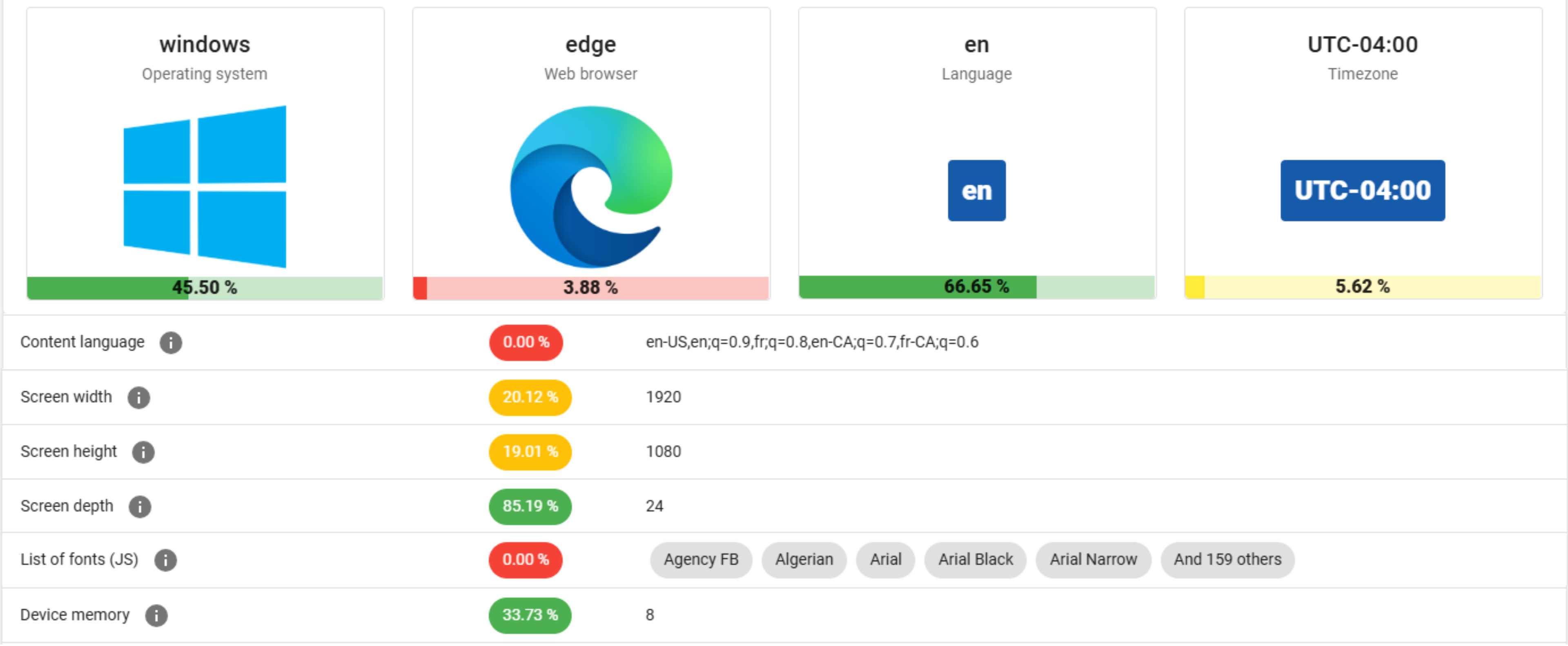Amidst the glossy marketing for VPN services, it can be tempting to believe that the moment you flick on the VPN connection you can browse the internet with full privacy. Unfortunately this is quite far from the truth, as interacting with internet services like websites leaves a significant fingerprint. In a study by [RTINGS.com] this browser fingerprinting was investigated in detail, showing just how easy it is to uniquely identify a visitor across the 83 laptops used in the study.
As summarized in the related video (also embedded below), the start of the study involved the Am I Unique? website which provides you with an overview of your browser fingerprint. With over 4.5 million fingerprints in their database as of writing, even using Edge on Windows 10 marks you as unique, which is telling.



Isn’t it a bad thing to be unique in this context? If my browser is 1 in a million, that means that a tracker can pick me out of a lineup of a million users, no? That’s why a captcha can verify you as human simply by checking a box, because it can identify your unique browser as associated with human activity.
If I’m not mistaken, we want the opposite. We want our browsers to be as generic as possible if we don’t want to be tracked.
I would think unique means you appear as a never before seen individual and not one they can identify from their fingerprint history. If you fingerprint twice and both are unique, you are secure.